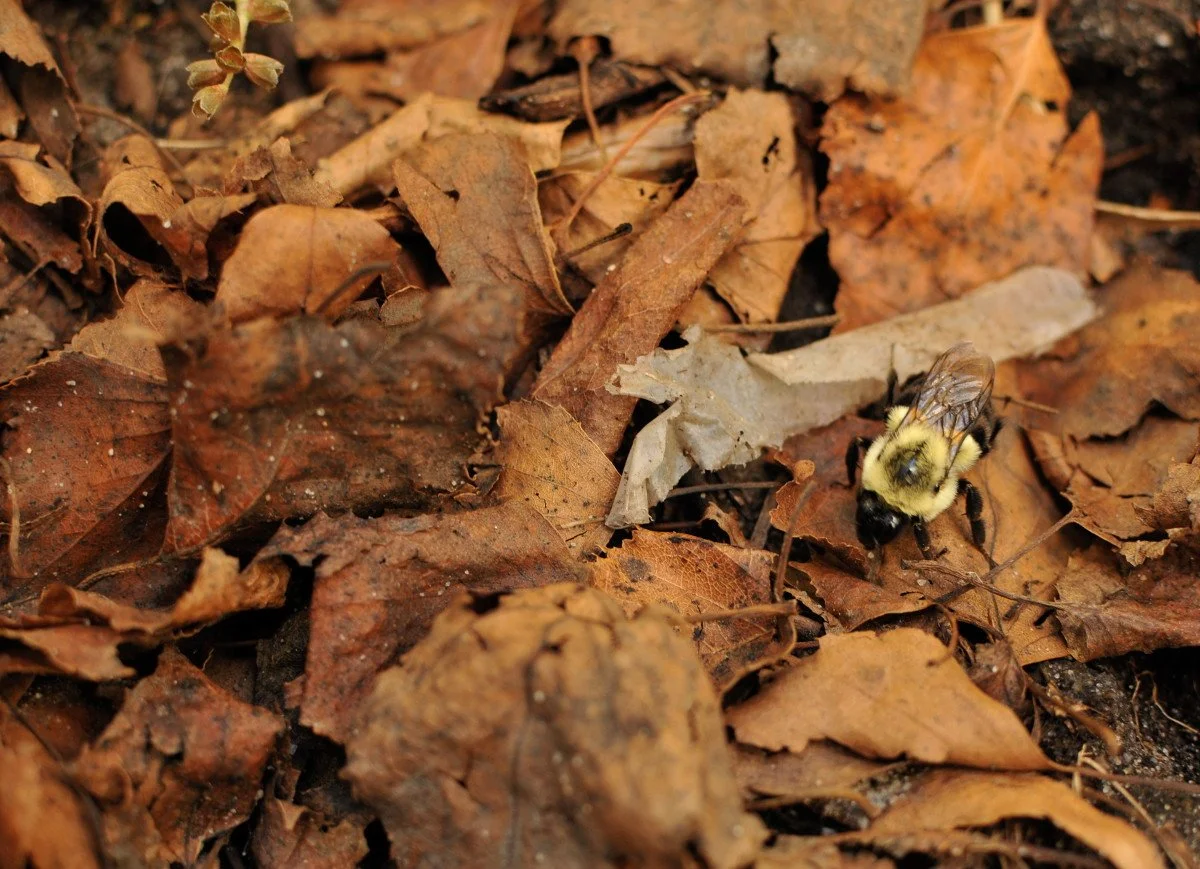Why You Should Leave the Leaves: A Nature-Friendly Approach to Fall Garden Cleanup
With winter on the horizon, many of us embark on the annual ritual of fall garden cleanup, which often involves the removal of fallen leaves. However, there is a growing awareness that this age-old tradition may not be as eco-friendly as we once thought. In this blog post, we'll explore the benefits of leaving the leaves in your garden, drawing from insights provided by the Xerces Society and the National Wildlife Federation.
The Environmental Impact:
Traditional leaf removal practices, involving raking leaves into piles and sending them off to landfills, have long been the norm. However, the consequences are more significant than we might imagine. The U.S. Environmental Protection Agency reports that leaves and yard debris contribute to over 13 percent of the nation's solid waste, totaling a staggering 33 million tons per year. Even more alarming is the fact that when organic matter like leaves decomposes in landfills without sufficient oxygen, it releases methane, a potent greenhouse gas that accelerates climate change.
This impact isn't limited to landfills. Gas-powered blowers and trucks used for leaf disposal also emit carbon dioxide. So, before you reach for the rake, consider the carbon footprint your cleanup may leave behind.
The Value of Fallen Leaves:
PC: The Xerces Society
Now, let's shift our perspective and consider the true value of those fallen leaves. According to the Xerces Society, invertebrates and other wildlife species rely on leaves for overwintering and habitat. Many insects and invertebrates, such as caterpillars and bees, tuck themselves into leaf piles for protection from cold weather and predators. Red-banded hairstreaks lay their eggs on fallen oak leaves, which serve as the first food for emerging caterpillars. In essence, leaves provide crucial shelter, insulation, and even a source of food for a variety of wildlife.
It's not just the invertebrates that benefit. The National Wildlife Federation points out that turtles, toads, birds, mammals, and many more species rely on leaf litter for food, shelter, and nesting material. By leaving the leaves in place, you are supporting a rich and biodiverse ecosystem right in your own backyard.
Double Benefit: Natural Mulch and Fertilizer:
Leaving fallen leaves on your property offers a double benefit. They form a natural mulch that not only enriches the soil but also helps suppress weeds. This means less money spent on commercial mulch and fertilizer. As the leaves break down, they release nutrients that promote healthy plant growth, reducing the need for synthetic fertilizers.
More Time to Enjoy Nature:
One additional reason to consider leaving the leaves is that it frees up your time. Instead of laboring over piles of leaves, you can embrace the gorgeous fall weather and the wildlife that visits your garden. Spending time in your outdoor space, observing the vibrant wildlife that the leaves support, can be a rewarding experience that enhances your connection with the natural world.
So, as the leaves begin to carpet your garden, think twice before you reach for that rake, blower, or disposal bag. The Xerces Society and the National Wildlife Federation remind us of the ecological importance of leaving the leaves in place. By doing so, you can reduce your environmental impact, enrich your garden's soil naturally, and provide vital habitat for a wide range of species. Plus, you'll have more time to savor the beautiful autumn season and appreciate the incredible biodiversity right outside your door. This fall, consider leaving the leaves and let nature thrive in your backyard.


